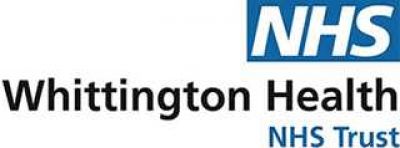-
Topics
- All Topics
- Self Care
- Blood & Skin
- Cancer
- Cardiovascular & Respiratory
-
Children & Family
- Child Emotional Wellbeing & Mental Health
- Children, Young People & Family
- Domestic Violence & Abuse
- Female Genital Mutilation
- Gender Identity Adults
- Homelessness
- Learning Disabilities
- Migrant Health
- Neurodiversity
- Safeguarding Adults
- Safeguarding Children
- Sexual Health
- Social Prescribing
- Speech & Language Therapy
- Diabetes & Endocrine
- Diagnostics & Investigations
- Frailty & Complex Care
- Gastroenterology, Colorectal, Renal & Urology
- Head, Neck & Eyes
- Infectious Diseases
- Mental Health
- MSK
- Neurology & Neurosurgery
- Nutrition & Weight Management
- Obstetrics & Gynaecology
- Social Care & Safeguarding
- Urgent & Emergency
- Clinical Pathways
-
Medicines
- Community Pharmacy
- Controlled Drugs
- Electronic Prescription Service
- Infections & Antimicrobials
- Medicines Compliance
- Medicines Optimisation Prescribing Policies
- Medicines Optimisation Team
- Medicines Supply Issues
- Patient Group Directions
- Prescribing Guidelines
- Prescribing Quality Scheme
- Prescribing Recommendations
- Self-Care Medicines Scheme
- Shared Care
- Fact Sheets
-
Practice Management
- Cancer Care Resources
- Deadlines
- Enhanced Services
- General Practice Change Management Support
- General Practice Staff Survey
- Greener NCL: Sustainable General Practice
- Hospital Bypass Contacts
- Immunisations & Vaccinations
- Interface Consensus
- Practice Vacancies
- Referral Support
- Research Opportunities
- Submit a Patient Safety Incident Report
- Submit a Quality Alert
- Support for Staff
- Education
- Digital
Community Matrons
IslingtonProvided By

The Community Matrons in Islington are part of the care group delivering proactive care in Islington and known as Proactive Frailty and Complex Care Team (PROFACCT). The Community Matrons are also a core part of the Integrated Care Coordination Networks MDT (INC).
The aim of the Community Matrons Team is to prevent avoidable hospital admissions through the case management of patients with complex needs, minimising exacerbation of long-term conditions and providing advanced nursing care and therefore an alternative to admissions to the Emergency Department or hospital.
Referrals are accepted from health and social care professionals in primary and secondary care, as well as case finding through hospital in reach and regular involvement with multi-disciplinary teleconference and attendance at multi-professional meetings.
Eligibility Criteria
Inclusions
To access a community matron, patients must have consented to the referral and be:
- aged 18 years or above
- eligible for publicly funded healthcare
- resident in the London borough of Islington or registered with an Islington GP.
Additionally, they should have one or more of the following:
- at least two co-morbidities and are presenting to their GP or secondary care provider with unstable multiple pathologies which impact on their daily life
- requiring long-term conditions management: optimising treatment, managing exacerbations and work in collaboration with specialist teams to improve patient outcomes
- be presenting to their GP or Emergency Department with an unstable long-term condition and Whittington Health does not have a nurse specialist to offer support with the presenting condition
- have a complex mix of physical, mental health and social care needs, impacting their quality of life or resulting in safeguarding concerns
- requirement for intensive case management to increase quality of life and minimise involvement of multiple services where clear leadership and care co-ordination is needed by a nurse with advanced skills
- been identified via the multi-disciplinary, Integrated Care Coordination Networks MDT (INC) as needing assessment and/or input (intensive or otherwise) by a Community Matron.
Exclusions
Patients will not be seen by a community matron if they have social care needs only.
Where the underlying cause of the presentation is solely caused by drug or alcohol misuse or an organic mental health condition.
Community matrons will discharge patients in the following circumstances:
- the patient has mental capacity and refuses to engage with the Community Matron input
- needs have stabilised and the patient can now self-manage
- the patient moves out of the area.
How to Refer
EMIS form
Referral methods: Email
Complete the Community Matron - Long-Term Conditions (LTC) Referral Form - Whittington and email to arti.centralbooking@nhs.net
Where to find the form
- Islington: ISL Global Library > LTC folder
Related Services
Community Matrons
To prevent avoidable hospital admissions through the case management of patients with complex needs HaringeyProactive care service & Community Matrons
Facilitates independence in the community by proactive case management, minimising inappropriate and unplanned hospital attendance EnfieldRelated Topics View All
Review date: Sunday, 18 October 2026
